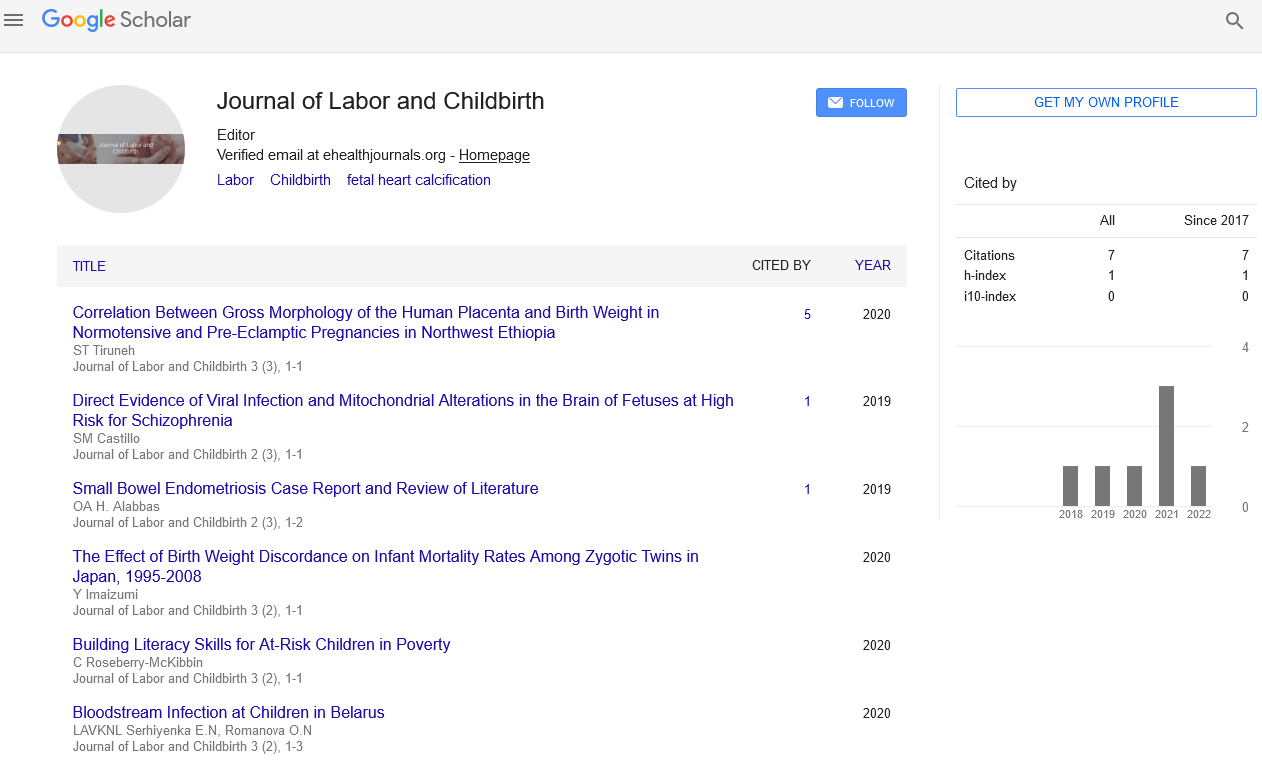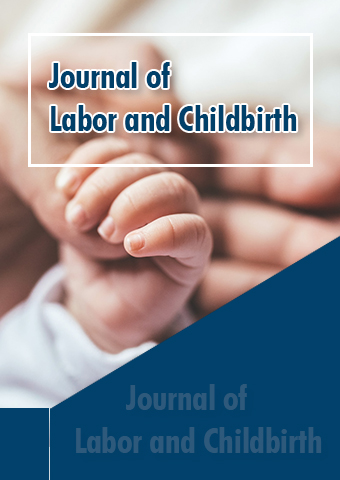Perspective - Journal of Labor and Childbirth (2024) Volume 7, Issue 5
The Importance of Prenatal Education: Empowering Expectant Parents
- Corresponding Author:
- Alan Tapp
Department of Child Welfare,
Medical University,
York,
United Kingdom
E-mail: AlaanTapp@uwe.ac.uk
Received: 28-Sep-2024, Manuscript No. jlcb-24-149116; Editor assigned: 03-Oct-2024, PreQC No. jlcb-24-149116 (PQ); Reviewed: 17- Oct-2024, QC No. jlcb-24-149116; Revised: 21-Oct-2024, Manuscript No. jlcb-24-149116 (R); Published: 28-Oct-2024, DOI: 10.37532/jlcb.2024.7(5).260-261
Introduction
Prenatal education plays a vital role in ensuring a healthy pregnancy and a positive childbirth experience. As expectant parents navigate the transformative journey of pregnancy, childbirth and early parenthood, prenatal education provides essential knowledge and resources to prepare them for the challenges and joys ahead. This article explores the significance of prenatal education, its key components and the benefits it offers to both parents and their babies.
Description
Understanding prenatal education
Prenatal education refers to the educational programs, classes and resources designed to inform and support expectant parents throughout pregnancy. These programs cover a wide range of topics, from the physiological changes that occur during pregnancy to the emotional and psychological aspects of preparing for parenthood. Prenatal education often includes information on labor and delivery, breastfeeding, newborn care and postpartum recovery.
The objectives of prenatal education
The primary goal of prenatal education is to empower expectant parents with the knowledge and skills they need to make informed decisions about their pregnancy, childbirth and parenting. By providing accurate information and practical guidance, prenatal education helps parents feel more confident and prepared for the arrival of their baby. Specific objectives of prenatal education include:
Enhancing knowledge: Prenatal education provides expectant parents with a thorough understanding of pregnancy, labor and delivery. This includes information on the stages of pregnancy, common discomforts, warning signs of complications and the importance of prenatal care. Understanding what to expect can reduce anxiety and help parents feel more in control.
Promoting healthy behaviors: Prenatal education encourages healthy lifestyle choices that benefit both the mother and the developing baby. Topics such as nutrition, exercise and avoiding harmful substances like tobacco and alcohol are commonly addressed. These classes emphasize the importance of prenatal vitamins, regular medical check-ups and staying active during pregnancy.
Preparing for labor and delivery: One of the most critical aspects of prenatal education is preparing parents for the process of labor and delivery. Classes often cover pain management options, the stages of labor and various birthing positions. By understanding the birthing process, parents can make informed decisions about their birth plan and feel more prepared for the experience.
Key components of prenatal education
Prenatal education programs vary in content and structure, but they generally cover several key components that are essential for preparing expectant parents. These components include:
Anatomy and physiology of pregnancy: Understanding the changes that occur in a woman’s body during pregnancy is fundamental. This component covers the development of the fetus, the role of the placenta, and the physical changes that mothers experience.
Labor and delivery preparation: This component focuses on the stages of labor, pain relief options and the various methods of delivery, including vaginal birth, cesarean section and assisted deliveries. Parents also learn about the role of medical interventions and how to create a birth plan.
Breastfeeding education: Breastfeeding is a crucial aspect of newborn care and prenatal education provides information on the benefits of breastfeeding, proper latch techniques and common challenges. Parents learn how to establish and maintain breastfeeding to ensure their baby receives optimal nutrition.
Newborn care: Caring for a newborn can be overwhelming for first-time parents. Prenatal education includes instruction on basic newborn care, such as diapering, bathing and soothing techniques. Parents also learn about the importance of bonding with their baby and recognizing signs of illness.
Benefits of prenatal education
The benefits of prenatal education extend beyond pregnancy and childbirth, positively impacting the health and well-being of both parents and their babies. Some of the key benefits include:
Reduced anxiety and fear: Pregnancy and childbirth can be intimidating, especially for first-time parents. Prenatal education reduces anxiety by providing clear, accurate information about what to expect. When parents feel informed and prepared, they are more likely to approach childbirth with confidence.
Improved health outcomes: Prenatal education promotes healthy behaviors that contribute to better outcomes for both mothers and babies.
For example, understanding the importance of prenatal care and proper nutrition can reduce the risk of complications such as preterm birth and low birth weight.
Enhanced birth experience: Parents who participate in prenatal education are better equipped to make informed decisions about their birth plan. They are more likely to communicate effectively with healthcare providers and advocate for their preferences during labor and delivery. This leads to a more positive and personalized birth experience.
Stronger parent-child bond: Prenatal education emphasizes the importance of early bonding and attachment between parents and their baby. By learning about newborn care and breastfeeding, parents are more likely to engage in nurturing behaviors that promote a strong parent-child bond.
Conclusion
Prenatal education is a powerful tool that empowers expectant parents with the knowledge and skills they need for a healthy pregnancy, a positive childbirth experience and a successful transition into parenthood. By providing comprehensive information on pregnancy, labor, delivery and newborn care, prenatal education reduces anxiety, improves health outcomes and strengthens the parent-child bond. As such, it is an essential component of prenatal care that should be accessible to all expectant parents.

